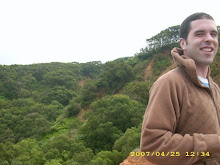An African nation with one of the world's highest crime rates. A nation with one of the world's fastest growing economies and a growing war between the police and heavily armed gangs. The world's largest nation, with a long history of human rights violations and government corruption. A tiny, oil rich emirate with no soccer tradition. FIFA has set an unexplored course for the World Cup, beginning this year in South Africa.
FIFA has been keen with expanding its brand into parts of the world that have never hosted the World Cup or that are seen as untapped sources of revenue. This year's South Africa World Cup was a great success for FIFA in tapping into the massive African soccer market. The next World Cup marks the return of soccer's greatest tournament to its spiritual homeland, Brazil, for the first time in almost 65 years. Russia was an obvious choice for 2018, as the World Cup has never been hosted in Eastern Europe before. The area has been a soccer hotbed for decades and the political climate finally favoured a move by FIFA into the area. The selection of Qatar in 2022, over the United States, is the most curious of FIFA's latest choices.
Qatar - The not-so obvious choice
On Thursday, FIFA selected the tiny emirate Qatar, as the host of the 2022 World Cup. Qatar bested the United States, Australia, Japan, and South Korea. There have already been accusations that Qatar had bribed the selection committee, but I'll avoid commenting on this, as that's a whole other story in itself.
Qatar is a small Persian Gulf emirate with a population of roughly 1.7 million. It's only about 11,000 square kilometres in size, which was a selling point for transportation issues. The country is one of the wealthiest in the world, thanks to its massive oil resources, with a per capita income of $84,000.
The nation has little soccer tradition. The national team has never qualified for the World Cup. It highest world ranking was number 51 (in 1993), but it has since dropped off to 113, in 2010. People were complaining that South Africa didn't belong in the World Cup, I can't imagine how Qatar will fair in tournament action.
Air Conditioning the Desert
The most interesting part about the selection of Qatar is that the World Cup is always held during July. In July, the average temperature in Qatar ranges from 29 to 44 degrees Celsius. That's not exactly conducive for playing soccer. The Qatar bid committee countered that they would be building all their new stadiums (another issue with the selection is the lack of existing infrastructure) with air conditioning systems. This undertaking will be immense both technologically and financially. Fast Company Design has an interesting blog post about the stadiums and the almost unrealistic design process for them.
Twenty-twenty-two is a long way down the road, so maybe technology will be developed to make this process feasible. Qatar definitely has the money to throw at it. Maybe it will be the most successful World Cup yet, but right now its looking like FIFA got a little greedy.
Badezimmer Bocholt
4 years ago

I first heard about the 2022 World Cup in Qatar from Live at Five, and I had to admit, I didn't know if the announcement was a mistake! It's an interesting choice. I mean, I'm not to big of a soccer fan myself, but even I know that was an out-of-the-ordinary choice.
ReplyDelete